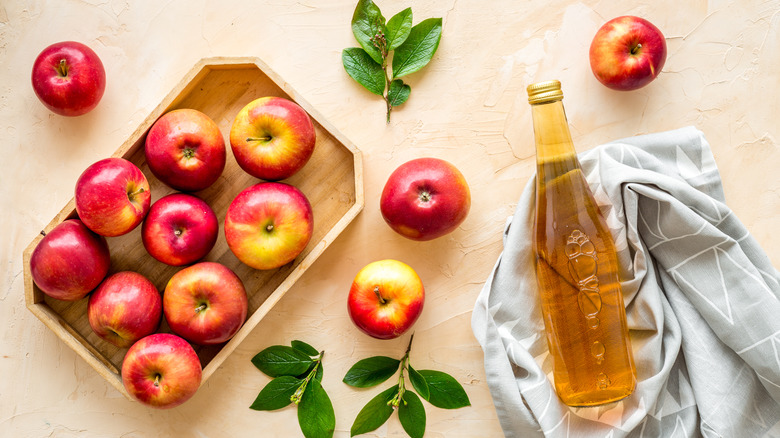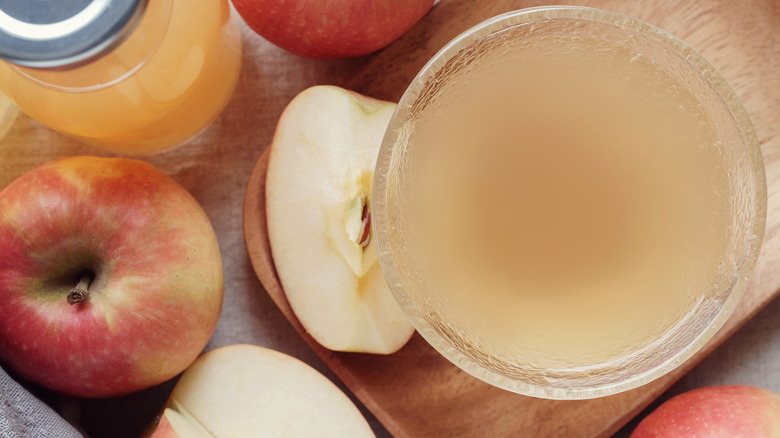What Is A Vinegar Mother?
As any experienced home cook knows firsthand, vinegar is an absolute kitchen essential. Whether you're reaching for a bottle of balsamic to splash into a salad dressing, some rice wine vinegar with which to finish a stir fry, or some apple cider vinegar to stir into chocolate chip cookies to give them a little extra lift, this delicious result of fermenting fruit or grains brings acidity, bite, and complexity to so many dishes. It comes as no surprise, then, that vinegar has been incorporated into cooking since pretty much the beginning of time.
Second to wine, it is believed, vinegar is the oldest fermented food on the planet, according to Eden Foods. Meaning "sour wine" in French, it's likely that vinegar was discovered when overaged wine turned into vinegar, and then was later applied purposely to other products including apples and rice. Most kinds of vinegar will be fully fermented within three to four weeks, writes Penn State Extension, and as they ferment, they will form something called a "mother."
A vinegar mother is a colony of bacteria and cellulose
If you've ever tipped some raw vinegar into a salad dressing only to see a chunk of something gelatinous escape along with the vinegar, you've spotted the mother, a byproduct of fermentation. As explained by Fermentation, this smooth, gelatinous disc that will form at the surface of a fermenting vinegar — where the liquid meets the air inside the jar — is created by the live bacteria inside, which weave a cellulose (or plant fiber) structure as they populate the vinegar. Types of vinegar that have been pasteurized and or filtered do not contain a mother, according to Wellness Mama, and those kinds of vinegar don't confer the same gut and immune-supporting benefits as raw vinegar.
If you've made vinegar at home — or even if you've gotten a good chunk of mother in a raw vinegar you've purchased — you can use it to easily make a new batch of vinegar just by slipping it into a liquid that already contains alcohol, such as wine, beer, or cider (via Preserve & Pickle). And if a little bit of mother makes it into your vinaigrette or dish, no worries. Vinegar mother is perfectly edible, according to fermentation master Sandor Katz, who notes that the gelatinous substance is often candied in sugar to make natural, healthy gummies, per Bon Appétit. You can even try it at home by following a recipe for candied kombucha scoby, which is a substance similar to vinegar mother.

